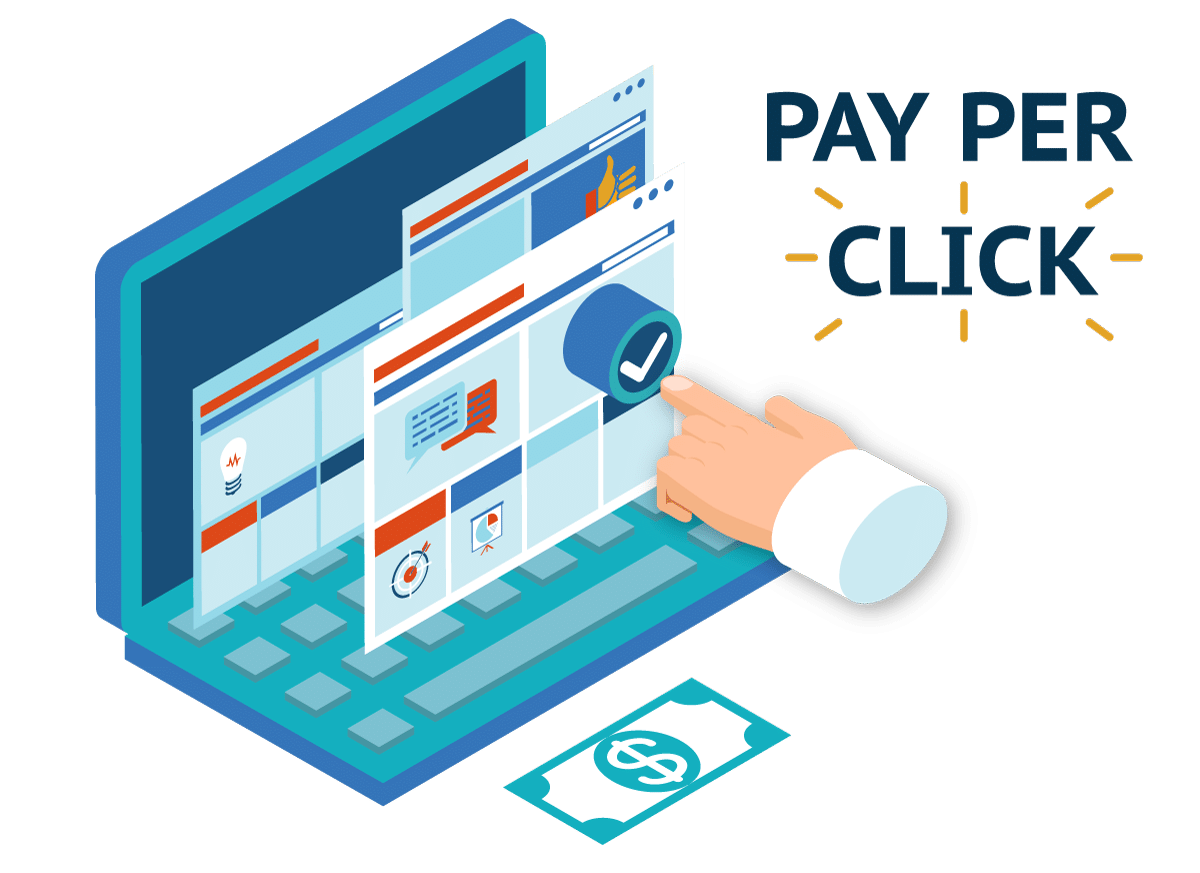Gain High-Level Brand Exposure and Attract More Leads
Home » Pay Per Click (PPC) Marketing
Today, the digital landscape keeps growing and websites are proliferating at warp speed. From small companies and franchises to eCommerce businesses and entrepreneurs, almost everyone is on the internet, figuring out advertising avenues and maximizing all possible conversion paths. Increased marketing opportunities, however, come with greater challenges.
Despite the availability of advertising tools and digital marketing channels, some businesses remain invisible to their target audience. As a result, market players are in an uphill battle, barely making progress with their internet marketing efforts.

A Hanapin Marketing report shows that 79 percent of marketers find paid search marketing beneficial to their business. Consequently, approximately 62 percent of industry players said they would continue to increase their PPC ads budget in the coming years to draw new customers looking for their services.
According to Social Media Today, more than 7 million advertisers spent a total of $10.01 billion for pay per click ads in 2017 alone. Evidently, pay per click has become one of the most widely used marketing frameworks for generating higher ROI. But what is pay per click and how can it ramp up your digital marketing efforts?
Grow Digital’s PPC experts explain what is paid search and how it works to guide you through the fundamentals of PPC management. By understanding pay per click processes, you have a better chance of launching profitable campaigns. Learn all about PPC marketing and find out how our pay per click marketing agency can help you achieve success.
Pay per click marketing is a paid search model used to build brand awareness, promote brand offerings and gain immediate traction from specific audience segments. With PPC, advertisers only pay each time a user clicks on the PPC ads — hence the name pay-per-click.
People usually think of Google PPC when hearing or talking about what is pay per click. But pay-per-click goes beyond the Google search engine results pages (SERPs) and the Google Display Network. Social media sites, such as YouTube, Facebook, Pinterest and LinkedIn, also use the pay per click model.
PPC allows marketers to place ads strategically on a variety of online marketing platforms to make their products and services highly visible to their target market. This means the advertisements you see across the web are pay per click ads.
